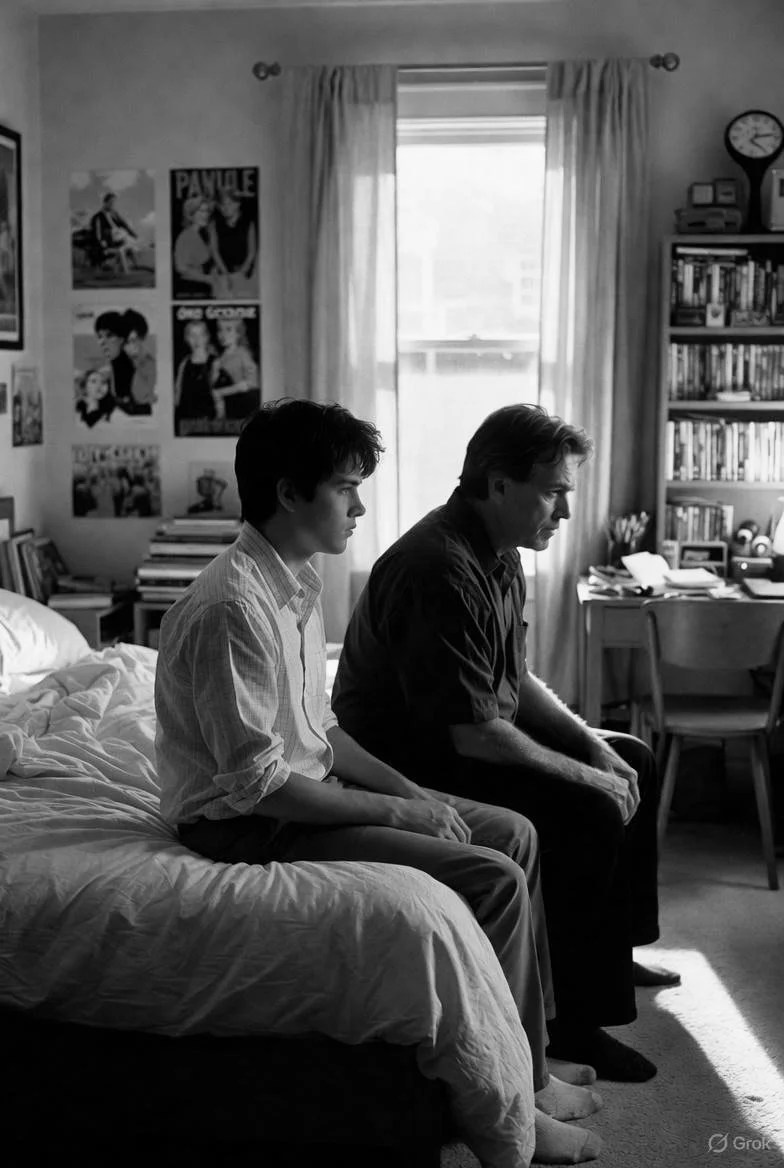On Adolescence
This summer, I (along with 145 million other people) binge watched the gripping miniseries Adolescence. The premise is stark: a teenage boy murders a girl in his class after a spiral of rejection and online humiliation. The show has sparked extensive cultural commentary, much of it focused on masculinity, incel subculture, social media toxicity, and the show’s striking single-shot cinematography that thrusts viewers into the immediacy of the story. But one point I found particularly interesting happened in the last 20 minutes of the final episode.
The fourth and final episode covers the aftermath of the boy’s actions, and the impact it has on his family. In the last scene, the parents are sitting in his room, on his bed, wrestling with their grief and their own culpability. They say things like, “We can’t blame ourselves… we couldn’t have done anything about it,” and then ask, “We were good parents, weren’t we?”
Within less than five minutes, they move from defending themselves to the vulnerability of questioning themselves. It’s an incredibly emotional and moving scene, particularly for anyone with an adolescent child. The guilt and grief are palpable. But at the end of all this turmoil, in answer to the husband asking, “Should we have done more?” the wife answers, “I think it would be good if we accepted that maybe we should have done [more].”
Though the question is clearly painful, there is peace. They are visibly relieved to accept and admit that they missed something, that there was something they could have done. There is a sense of release in accepting the truth they were avoiding. This scene hit me like a ton of bricks. Because while the rest of the series was hard-hitting, shocking, and revealing about many potential problems affecting our society today, this one was the most relatable.
Often in our personal and professional lives, we are resistant to asking ourselves the questions that keep coming to the surface. A client of mine was consistently unhappy at work. She felt like she was being undermined and undervalued. But she kept telling herself it was a good job, that she was lucky to have it in this climate, and she tried to brush off the frustrations that kept mounting. It took asking the hard questions, “Is this job worth it? Do I want to work here?” for her to finally realize she had been living in a miserable situation out of fear. She was telling herself she couldn’t get another job, so she wasn’t asking the question that was bubbling up under the surface. And when she did, she realized this job simply was not worth it.
A few years ago, I was having a difficult time with one of my children. He was suddenly showing up short tempered and checked-out during family time. I tried to be pleasant and engaging, praying for my child every day. After a long time, I finally asked myself, “Is he happy? Is this a cry for help?” and when I faced that question, I realized we needed something more than just a nice cooked meal and a rosary. It was time for a difficult, sit-down conversation. As a result, my child knew that he did not have to shoulder his burdens alone. We were there, and we would continue to be there. It’s not always this easy in parenting, but sometimes, facing reality more directly is all it takes to get things moving again in the right direction.
If we’re honest, most of us can recognize the ways we dodge the questions that won’t leave us alone. We stay in jobs that make us miserable, in relationships that aren’t healthy, or we put off the difficult but necessary conversation with someone we love. We pretend everything is fine. We keep trying to assure ourselves that the initial “easy” answer will suffice, although deep down we know it doesn’t satisfy us. And how do we know it doesn’t? Because the question keeps coming up. There is something that remains unsettled in us until we face it directly.
In the last moments of Adolescence, the father goes back into his son’s room. He breaks down on the bed, sobbing into a pillow. And then he kisses his son’s bear and says, “I’m sorry, son. I should have done better.” Life is hard. No one ever said it wasn’t. But looking honestly at ourselves and accepting the fallout of our actions or lack thereof is the only way to restore peace. And then we begin again.
This week, I invite you to ask yourself:
What uncomfortable question keeps surfacing, and what would happen if I allowed myself to answer it?
Peace,
Nicole Tittmann
Senior Coach, TAM NOVA

